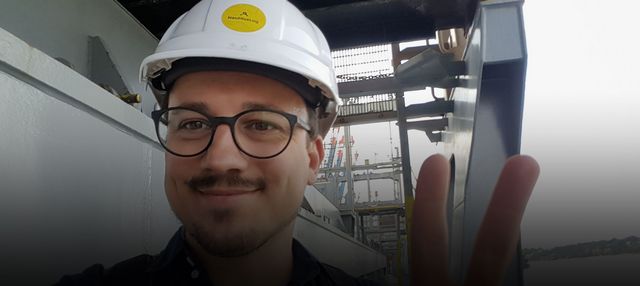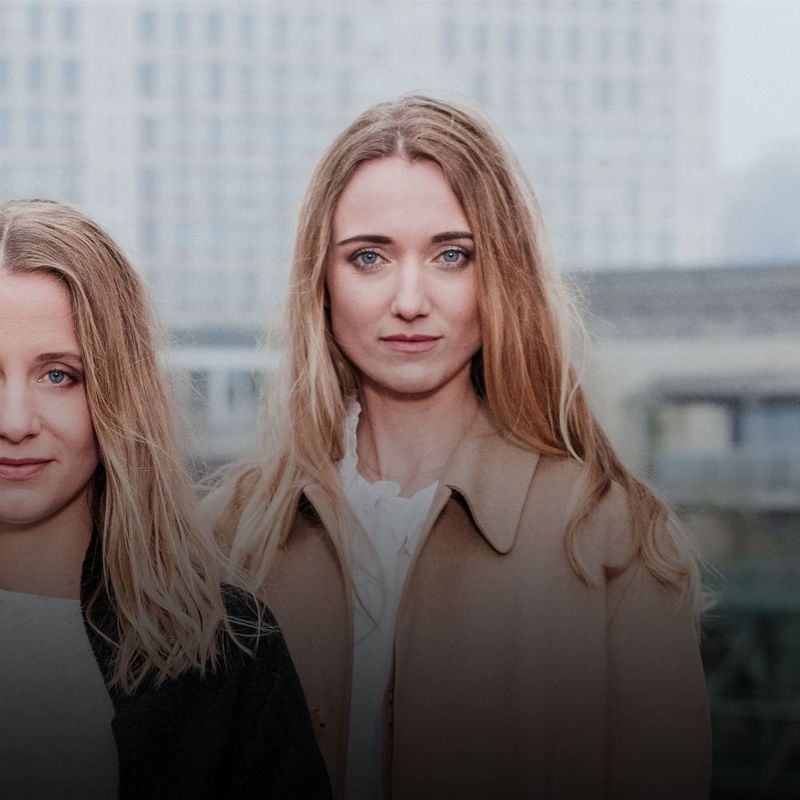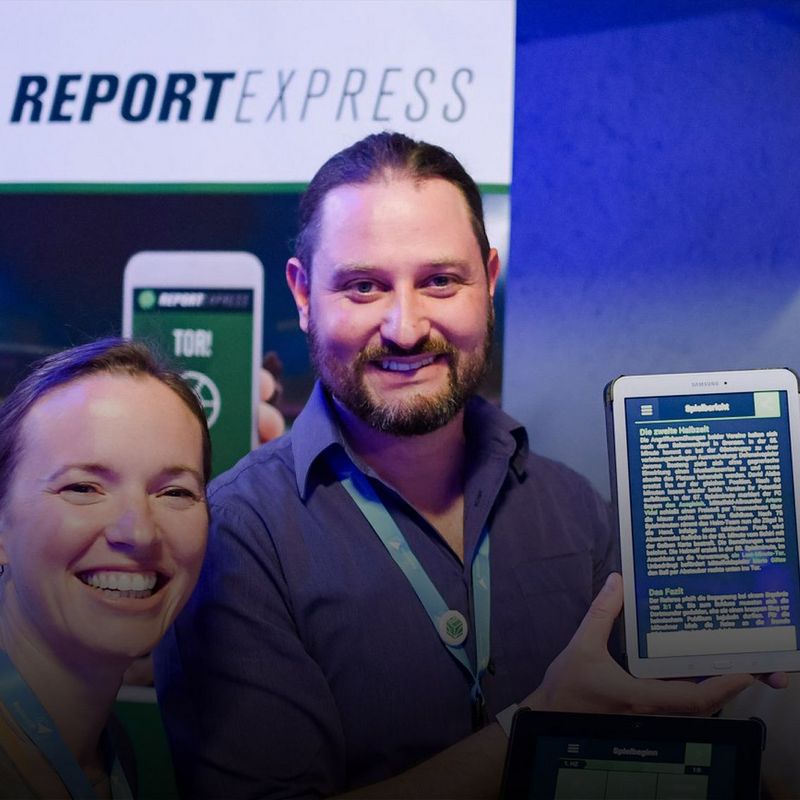09 April 2020
Hardly any other transport system has a history as long as shipping. This also applies to various methods used on board: As has been the case for centuries, logbooks are still handwritten on paper – and, depending on the ship, up to ten copies may need to be made. Otto Klemke and his colleagues from NautilusLog want to change this, using digital methods to improve processes both on board ship and in port.
Name:
Otto Klemke
Age:
36
Occupation:
Media information specialist and founder of NautilusLog
Website:
www.nautiluslog.com
What is NautilusLog?
We’re using NautilusLog to digitalise shipping. Our goal is to enable the use of digital services, on ships, in port and beyond. To achieve this, we’re replacing the paperwork which is still required by law with a digital logbook. But we aren’t just getting rid of paper but also helping eliminate the work that goes into generating it. The aim is to offer quick and straightforward support not just to ships as they go about their daily business but also to their management and external partners on land. We’re taking care of the technology and pushing for new regulations and standards to enable everyone involved to save money.
"Our goal is to enable the use of digital services, on ships, in port and beyond."
How did the idea come about?
Throughout my professional life, I’ve always tried to gain experience of projects in different industries. They can learn a lot from each other, especially when it comes to digitalisation. When I got my first insights into the world of shipping courtesy of my brother in 2016, I was surprised about how backward the industry was. There was a lack of digital applications, standards and interfaces. So, we decided to combine our skills and develop an application for shipping. But we didn’t just want to work on a solution that we thought the market might need; we wanted instead to work with the market to develop it together bit by bit based on actual needs. Talking to different maritime actors gave us a profound insight into the sector. This marked the start of an exciting period during which we were allowed to inspect container ships, sail along in them and interview their crews and management. When we finally asked whether we should digitalise the logbooks, the shipowners told us that, although this was more than overdue, the legal situation meant that it was impossible. At the same time, the authorities were telling us that, while there was a need to make up some ground up here, there weren’t yet any appropriate framework conditions for the parties involved. Our idea placed us between the market and the regulators. For this reason we were invited by the DIN (the German Institute for Standardisation) to share our expertise and develop a new regulation for smart logbooks. Our journey began ...
The shipping industry needs NautilusLog because ...
... the prevalence of paper and the regulations have shown that the market isn’t yet digital. Our goal was to bring fresh perspectives and new options rather than just transferring all the bits of paper unchanged onto a computer screen. We meet challenges with innovative ideas, which we test in collaboration with the market and implement without bias in the spirit of partnership. We’re convinced that solutions that benefit both parties will be the ones that prevail in the long term.
What does the app do differently than an analogue logbook?
Books contain valuable information – unfortunately, this potential isn’t always usable on paper in those places where the information can be combined and processed to generate further added value. We use smart technologies to capture data digitally rather than with pen and ink. Once collected, information can be checked in the background and errors and action points automatically detected. We remind the users of their tasks and accompany them step by step. We can digitally connect and collaborate with different actors without duplicating information or having to put up with media disruptions.
What other functions are planned?
We’re in the process of creating new standards. Along with our regulatory work with the DIN, we’re involved in various research projects with a range of maritime partners to plug gaps in the sector, and we’re helping prepare the shipping industry for future challenges.
How is the app going down with shipping companies?
I think we’ve got some good momentum going. As well as having been contracted to receive over 1500 environmental reports, we’re also getting very good feedback and lots of interest from the market. We’ve been recognised with awards both nationally and internationally and are happy to be finding responsive audiences at conferences and among delegations and to be continuing to engage in dialogue with shipowners on some interesting issues.
"The biggest challenge is as it always has been, to bring the traditional and digital worlds together."
And the biggest challenge is...
... as it always has been, to bring the traditional and digital worlds together. In addition to the regulatory basis, this is above all about gaining the trust of the market. We’ve come into contact with companies and decision-makers who’ve never had any experience with start-ups. Digital solutions offer more added value than insular solutions but can also cause harm where data and expertise are shared. Since bad decisions can lead to high costs in this environment, we’ve had to bring different stakeholders together. This has been quite a challenge in this competitive industry.
Which digital product has yet to be invented?
I’m lucky in that no one day in my job is like any other. But this also poses problems. For instance, it’s hard to plan in regular events like a proper lunch. I wonder if food could be digitalised ...
And which products can you do without?
... Maybe I’d rather go without digital food after all, but I’d welcome any digital aid that could sort out my diary properly.
Would you like a household robot?
I still like to cook for myself, especially as a nice way of rounding off the evening ... although I’d love to have a friendly assistant to tidy up after me.
Which technical application will always remain a mystery for you?
The Flux Compensator from “Back to the Future”. But to have one would be to have my dearest technological wish come true. If it was properly connected to me, I’d be able to travel through time so that I could go to the hairdresser, go on holiday and work productively all at the same time. If only it weren't for the paradox.
When were you last offline for 24 hours?
In June 2007 – the week before I was given an iPhone.
A holiday without Wi-Fi: Is that a dream or a nightmare?
It's a dream I'm working on right now.
In the #explore format we’re giving a regular voice to exciting and inspiring people from the digital scene: researchers, bloggers, start-up founders, entrepreneurs, hackers, and visionaries.


